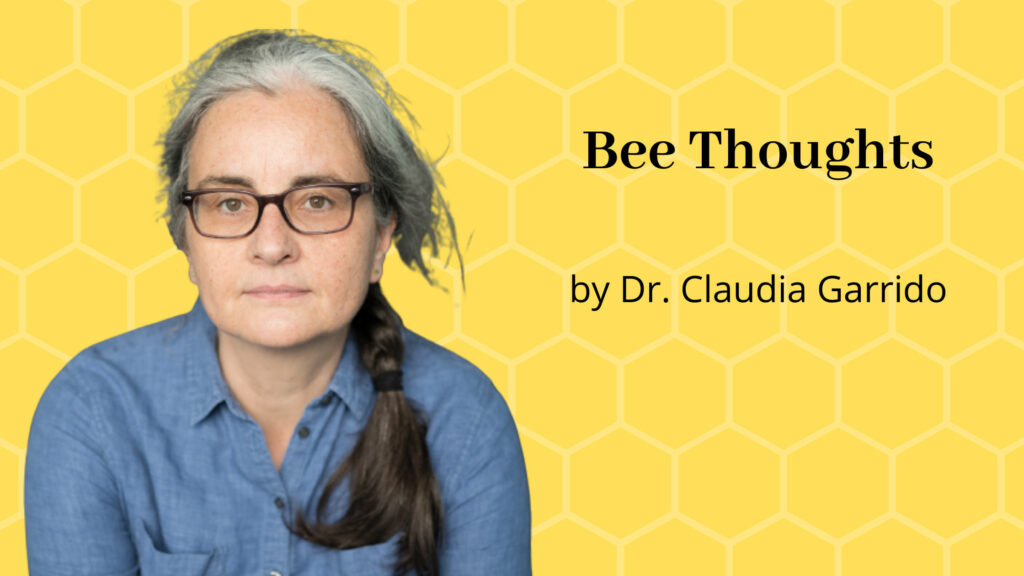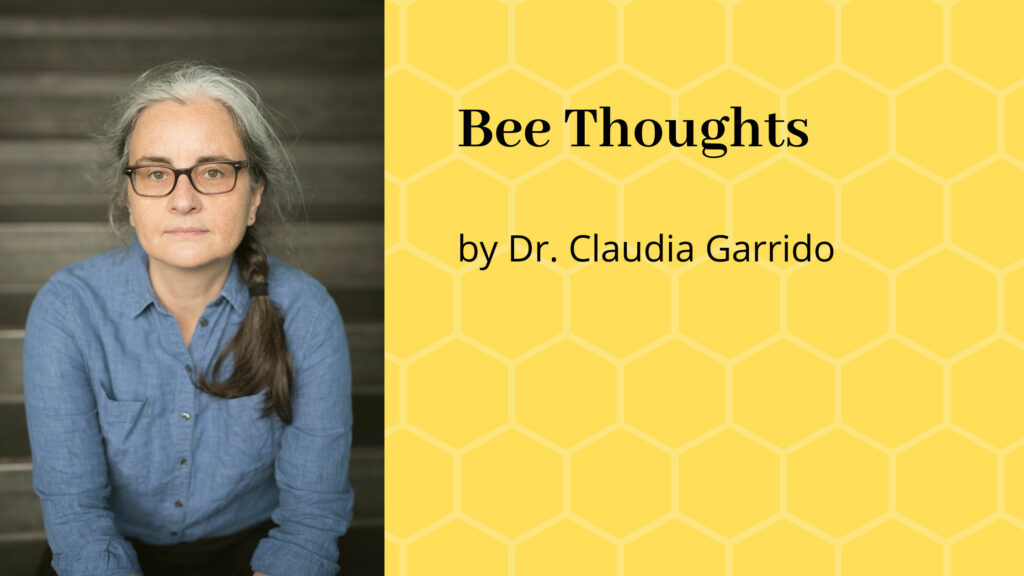There are several ways how learning and knowledge help against colony losses. One of them is that it prevents falling into traps. With that, I mean those scam traps like “100% natural, 100% safe, 100% efficient”. That doesn’t exist. So, if you get an ad claiming things like that: Don’t buy those products, you’ll be losing money and put your colonies at risk. I explained that in more detail in the linked post.
But there are also other aspects. Education makes you stronger to deal with difficult situations. Also in beekeeping. For instance, it’s quite important to know how to differentiate. This means that you know what really belongs to the problem or issue you’re dealing with and what doesn’t. That’s an element of critical thinking. And that’s important to avoid colony losses.
Let me give you an example.
Colony losses don’t mean honey bee populations are declining
I hear and read quite often something like “Bee populations are declining!”. This is a quite general statement, which is true und untrue at the same time. Why? Well, because this simple sentence has many layers to it. Here are three of them:
- “Bee populations are declining” is correct if we talk about all bees. So, all 20,000 species worldwide. There, we’re seeing a general decline, especially for certain species.
- This isn’t true for managed honey bee colonies though. Worldwide, the numbers of colonies is even increasing.
- This doesn’t exclude that there are high or even increasing colony losses in managed honey bee colonies.
The latter may surprise you. But colony losses aren’t the same as fewer honey bee colonies. This is because beekeepers have techniques to multiply colonies – like making nucs or artificial swarms. So, the number of colonies may stay the same or increase even if beekeepers are losing more and more of them over winter. Or during the season. We’ll come back to that later.
Why colony losses happen
There are many different drivers for colony losses. Between the most prominent, there are always – you may already imagine – varroa mites. This is the most important risk factor named by most studies and monitorings in different parts of the world. Most of the data we have, unfortunately, are from Europe and North America, but there’s also some new info from South America.
Other risk factors for colony losses are other diseases, pesticides, and management. The latter is important, because this is something we have that under control. And it influences some of the other risk factors. For instance, varroa treatments are a management decision. To do them correctly and timely, too. That’s something every beekeeper has in his hands to do. Not the society or other entities who don’t support beekeeping enough.
Here’s where learning and education comes in. When you don’t know things, nobody ever explained them to you, then you may find yourself in a situation you don’t know how to deal with. In such a situation, it’s easy to blame someone else, because you can’t even imagine what you could do. Beekeeping, good practices, are like everything in life: You have to learn it first.
Education and experience help
Years ago, a monitoring in 17 European countries (and a total of 5,798 apiaries!) found that the experience a beekeeper had clearly correlated with their winter losses. Beekeepers with only a few years of experience had higher losses than those with more experience. In the monitoring, they associated “experience” with professional beekeeping. I wouldn’t do that. Obviously, if you have to make a living out of something, the willingness to learn how to do things may be higher (hopefully…). But I also know beekeepers who never had more than 20 colonies who know a lot more than others with much larger operations. The crucial point is to be willing to learn. And to see what’s within your control. I.e., what you can do.
This relates to the summer losses I mentioned above. In the Bee Informed Partnership, one of the most prominent causes for losses during the summer were “queen issues”. This could be many things (and is never defined properly by the authors who use the term):
- Swarming, i.e. a queen “escaping”
- A queen not properly mated that lays only drone eggs
- An old queen that doesn’t lay properly
- A queen with a disease
- The beekeeper squeezing the queen.
You name it. Anyways, I’d classify this as a management issue, too. You can prevent swarming (by nucs, artificial swarms, giving more room…), you can change a queen. If a queen is showing disease symptoms, this is a sign that something went wrong with the health management for quite a while. Queens are the last to catch a disease in a colony. So, many moments, a beekeeper could have done something.
Learn to see what’s in your control
Let’s come back to learning to differentiate. This helps to see the nuances of an issue and what you can do. Or where you need help. Because, obviously, not everything can be solved alone. I like to speak of three levels of responsibility:
- The individual level. This is about everything you can do, control, improve. So, for example, treating against varroa, documenting the age of your queens and exchange them regularly, or choosing an apiary site with sufficient forage. Here, I’d also include keeping yourself up to date to the relevant recommendations from science, reading, making courses. I.e., individual learning.
- The community level. This is everything where you can’t advance alone. A beginner will need a more experienced beekeeper to gain security. Here, we can also include things like association meetings, the exchange between neighbouring beekeepers, etc. In a community you could also coordinate varroa treatments to avoid reinfestation. Or agree on a rotation of products to avoid resistance. You could also organize courses and discuss learned things. These things are best done together.
- The political level. Yes, everything has to do with politics. This is what gives you the framework in which you can move. So, policy makers should provide you with good, registered products for varroa treatments. Or provide the structures for training measures, knowledge transfer between science and practitioners, and for applied research. This is connected to the community level. Because a strong community has a greater force to ask for these things. And also to the individual level. Because you can vote for those who care about the environment, food security, you name it. Things that finally influence what you can do yourself.
To realize what is within your control and what isn’t you need education. So, we landed again on the statement from the beginning: Education makes you stronger.


